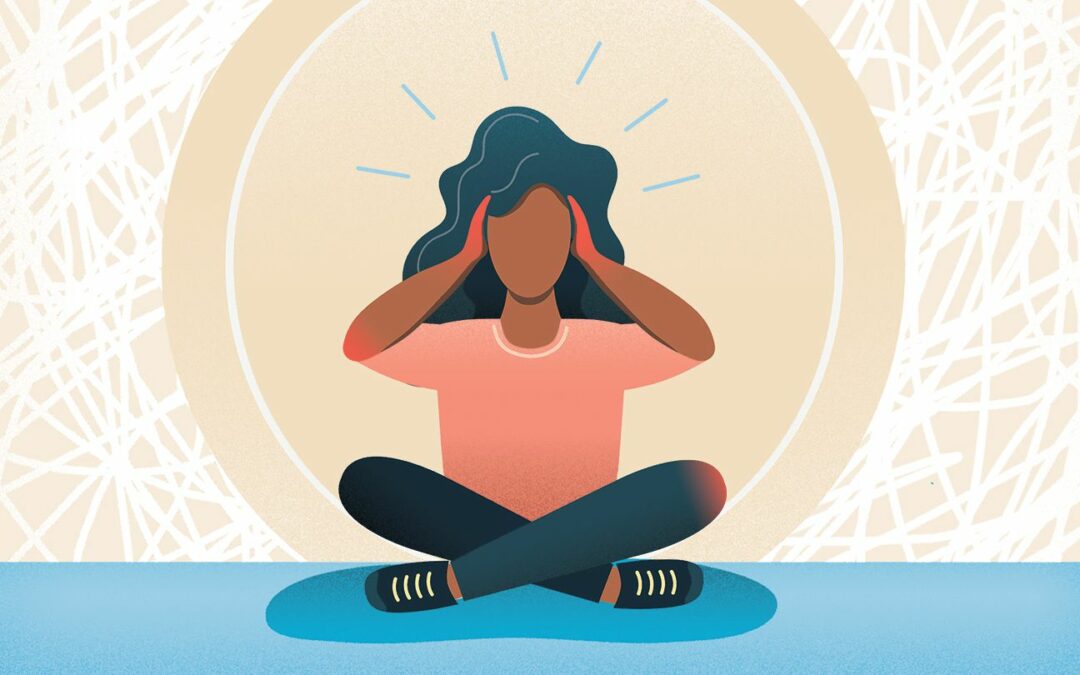At some point in life, every individual goes through some degree of stress. It occurs more often than we think and can be a source of motivation to some extent- for completing a particular task to push us out of our comfort zone. It becomes unhealthy when the same stress makes an individual feel frustrated, angry or nervous or triggers anxiety and fear. When such feelings stay over a period of time or are not managed properly, it impacts one’s health in different ways.
As Stress Awareness Month is around the corner, we dig into some common health issues that are set off due to prolonged stress.
Aches and Pains
It is an age-old fact that when you’re stressed, your muscles tense up! Such tensions can cause headaches, shoulder pain, backache, knee pain, body ache or can end up leading to chronic fatigue. These pain or aches can be triggering if you stop exercising or turn to pain medication for relief. People under stress also tend to perceive pain differently, that’s why a healthy sleep routine is necessary to set off tension-related pains.
Weakened Immune System
While patients with autoimmune disorders experience flare-ups in their symptoms during or after stressful events, even a healthy person can be a victim of frequent illnesses due to stress. People exposed to flu viruses are less likely to fight off the germs if they have ongoing stress in their lives. Stressed people’s immune cells may be less sensitive to a hormone that fights off the inflammation which can make them prone to serious diseases as well.
Bad Gut Health
Stress can have different responses to your gut health! If you are constantly under stress, your liver produces extra glucose which gives an energy boost for a shorter duration. The same accumulated glucose remains undissolved which can increase the risk of developing type 2 diabetes in the long run.
However, traumatic stress events can create issues like heartburn, stomach cramping, and diarrhea or get worsened for some people. Also, IBS signified by pain and bouts of constipation and diarrhea is thought to be fueled in part by stress.
Cardiovascular Issues
People who are under intense stress are more likely to develop heart diseases, especially those facing emotional stresses like anger, anxiety, etc. Although it’s extremely rare, the accumulated impact of chronic stress contributes to developing health conditions like high cholesterol levels, diabetes, high blood pressure, obesity, and alcohol addictions leading to increasing the risk of heart attack or something worse.
Reproductive Health
It’s not unusual to lose the desire for sexual activities while experiencing stress. In men, testosterone levels may drop, interfering with sperm production, or leading to erectile dysfunction, and impotence. Staying stressed for a long time can increase the risk of infection in male reproductive organs.
Women may notice a substantial change in their menstrual cycle which can lead to irregular, heavier or more painful periods. Usually, known as ‘hormonal imbalance,’ stress magnifies the physical symptoms in female bodies while experiencing chronic stress.
Disrupt sleep
When you’re stressed, your body constantly releases stress hormones making it harder to fall asleep causing sleep impairment. Some people develop hyperarousal insomnia, a state where your mind and body are easily woken up by any slight disturbance, external sounds or even by your own thoughts.
Mental Health issues
In the pandemic era, it is important to acknowledge that stress can bring on symptoms of depression, anxiety, and PTSD, reducing your interest in performing routine activities. At times, people tend to eat poorly or exercise less which triggers the symptoms stronger. Feeling down in the dumps due to stress is normal until it starts affecting your mental health. The key is to accept it and watch out for signs of an effective treatment on time.
Feeling down in the dumps because of stress isn’t a personal failure. It happens to most of us, so don’t be afraid to reach out for help. “We can treat the symptoms,” says Dr. Lang. “The real key is to find and treat the cause of the problem.” By working together as a team with your doctor, you’ll be on your way to a healthier you.
Aging
Suffering from prolonged stress is reflected in our skin. No matter what the reason is, chronic stress shortens telomeres, which are protective caps on the ends of chromosomes in cells, causing your cells to age more quickly. High cortisol and stress hormones fatigue our bodies which comes out in the form of prominent premature aging with the signs of dehydration, roughness, deep expression lines, sallowness, or wrinkles.
Yes, acknowledging the impact on health from stress is terrifying but the good news is switching to a healthy lifestyle can do wonders. Following an exercise routine in addition to a balanced diet is the first step to combat stress in life.
Keep an eye on your daily stress level and do not hesitate in seeking medical expertise when required. At Prakash Hospital, our experts help you determine your risk factors for chronic illnesses and suggest preventive health screenings to keep you fit and healthy!



Recent Comments